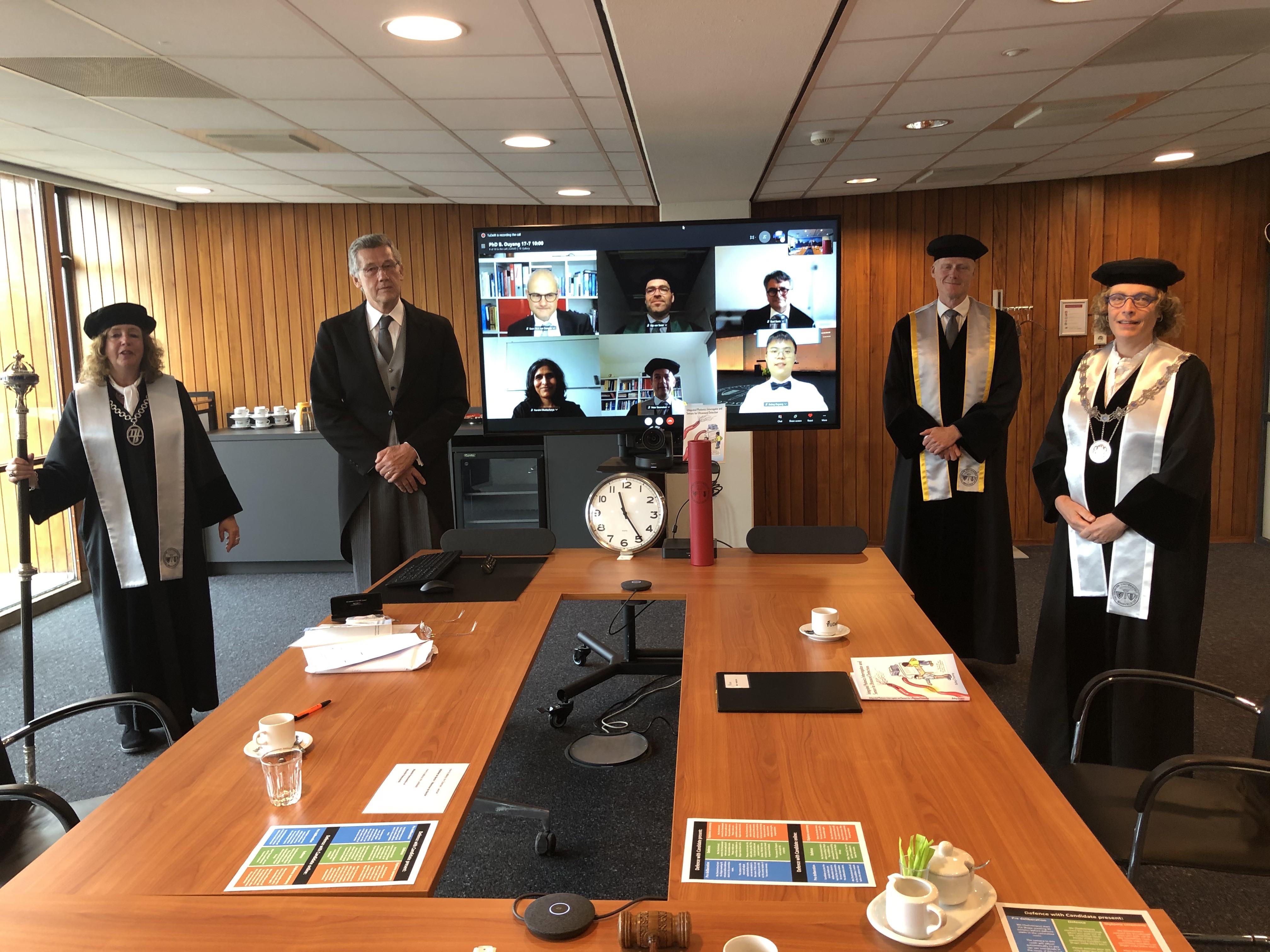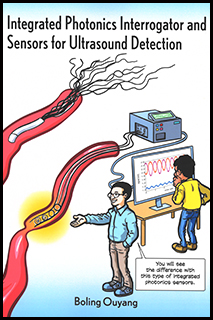Boling Ouyang successfully defended his PhD thesis
On July 17th, 2020 Boling Ouyang successfully defended his PhD thesis on "Integrated photonics interrogator and sensors for ultrasound detection".
Abstract
Ultrasound sensors based on integrated photonics devices provide a new solution to meet the miniaturization demand for the detection functionality of transducers. An important example is the silicon ring-resonator (RR) ultrasound sensor developed in our department. This sensor combines a small footprint with high sensitivity and a low detection limit. Compared with piezoelectric transducers, it has additional advantages of low cost, mass producibility, and immunity to electromagnetic interference. It is also possible to build an array of these RR sensors on a single chip. These merits make the sensor appealing for ultrasound detection in general. However, there are three challenges that have arisen from this previous work on the RR ultrasound sensor. These challenges relate to specific properties of such silicon RR ultrasound sensors and to the high sensitivity of silicon integrated photonics devices to fabrication variations. More specifically, difficulties in interrogating RR ultrasound sensors need to be overcome. Further, inherent drawbacks of RR ultrasound sensors need to be addressed, suggesting to look for an alternative silicon integrated photonics ultrasound sensor. Finally, design methods need to be developed for making RRs and Mach-Zehnder interferometers (MZIs), which are widely used in silicon photonics, robust to fabrication variations. This thesis addresses the three challenges sequentially. We developed an integrated photonics interrogator to better read out the RR sensor, a silicon MZI based ultrasound sensor to overcome the RR sensor's drawbacks, and design methods for silicon RRs and MZIs with a free spectral range insensitive to fabrication variations.
https://doi.org/10.4233/uuid:faaabafd-5087-4726-80f7-64ba5f864931

